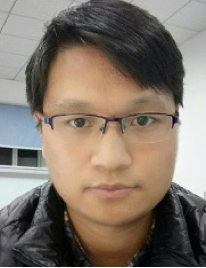Data-driven nanomaterial design theory and high-throughput screening
Sulei Hu, W. X. Li
University of Science and Technology of China, Hefei, 230026, China
EXTENDED ABSTRACT: Thermally and chemically induced size growth of nanomaterials are key factors that determine the industrial application of various nanotechnology, especially heterogeneous metal nanocatalysts, to meet environmental and energy challenges, but the lack of basic theories makes the screening of robust nanocatalysts still highly dependent on high cost repeated trial and error experiments, and greatly delayed the industrial conversion of highly active catalysts. In the past few years, we have systematically established a general theoretical method to describe the growth kinetics of metal-supported nanocatalyst migration and coalescence (PMC). In addition, we developed a general scale theory of Ostwald ripening (OR) kinetics of supported nanomaterials through regression learning of 1610 ripening kinetic curves. We found that the two mechanisms that control the deactivation of nanocatalysts—PMC and OR—have a strong competitive dependence on the strength of the metal-support interaction (MSI). By using 1252 energetics data and kinetic simulation of 10 transition metals and 91 support, it is found that the growth kinetic rate has a general volcanic dependence on MSI. The best single component support requires moderate MSI: too strong will trigger the OR channel, and too weak will cause the PMC path. The sintering onset temperature of the optimal single-component oxide supported nanocatalyst can reach half of the melting temperature of the metal, that is, the Taman temperature of the material. Using this principle, we screen of 6472 two-component heteroenergetics supports, thus breaking through the limit of the volcanic curve, making the stability of the supported nanocatalyst far exceed the Taman temperature. This theory reveals the inherent law of nanoparticle growth dynamics, which is verified by molecular dynamics simulation based on first-principles neural network potential functions and experimental data, paving the way for the rational design of robust and efficient nanocatalysts.

Sulei Hu has completed his PhD in 2018 from Dalian Institute of Chemical Physics and Postdoctoral Studies from University of Science and Technology of China. He is now an associate researcher at the National Research Center for Physical Sciences at the Microscale. Since 2018, 12 papers have been published in academic journals such as "Science", "Nat. Catal." and "Nat. Commun.". He has been funded by Excellent Postdoctoral Funds of the National Research Center, First-Class Funding of China Postdoctoral Postdoctoral Program, Special Funding of China Postdoctoral Funds, National Natural Science Foundation of China Youth Fund, Youth Innovation Fund and Youth Innovation Key Fund.